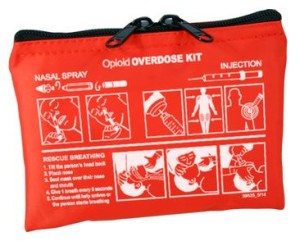- EHR use a ‘frustrating’ time suck, physicians tell American Medical Association (healthcareitnews.com)Providers press for delay, flexibility in EHR rule (modernhealthcare.com)
...more physician groups are making the case that stringent regulations and suboptimal technology have left physicians spending too much time grappling with their electronic health records...It's not that physicians are against health IT. In fact, most have adopted technology "at a blistering pace,"...But unrealistic and uncoordinated requirements are overburdening physicians' time and affecting the quality of patient care...AMA published a list titled "How EHRs tied up physician time in 2015."...EHR technology continues to underwhelm...Meaningful use is outliving its usefulness...Physicians are talking back -- and being heard...the Association of American Physicians and Surgeons also put out a strongly worded complaint this week, charging that EHRs could "crash" the U.S. healthcare system..."EHRs are supposed to be a cure-all for inefficiency and medical errors,"..."But the costly, clunky systems the government demands are worsening the problems and even driving some software experts back to paper."..."It's a major distraction from face-to-face patient care and interaction, thereby increasing the chance of missing important information, and in the end, increasing the probability of clinical and treatment errors,"..."The federal government should have no role in telling how physicians how to keep their records,"...
- Under pressure, CDC delays release of opioid prescribing guidelines (statnews.com)Draft CDC Guideline for Prescribing Opioids for Chronic Pain, 2016: Summary of Constituent Comments and CDC Response (freepdfhosting.com)Painkiller politics: Effort to curb prescribing under fire (hosted.ap.org)
Under mounting criticism, the Centers for Disease Control and Prevention has delayed plans to...release controversial opioid prescribing guidelines for primary care physicians. Instead, the guidelines will now be issued sometime later in the year...The delay was first signaled yesterday when the CDC unexpectedly disclosed that public comments on its proposal would be accepted through Jan. 13. However, the agency will also tap the National Center for Injury Prevention and Control’s Board of Scientific Counselors, a federal advisory committee, to review the guidelines and public comments...The postponement follows complaints from representatives of other federal agencies and consumer advocacy groups that the CDC guidelines were based on weak evidence and would unfairly restrict some patients from obtaining needed pain relief. The agency was also chastised for using a “secretive” process to formulate the guidelines, which some critics argued had violated federal law...the CDC delay apparently reflects a desire to comply with the Federal Advisory Committee Act, which governs how expert groups are formed to provide official advice.
- Reckitt Benckiser misled consumers on Nurofen painkillers: Australian court (reuters.com)
An Australian court ordered Reckitt Benckiser to pull several of its Nurofen pain relief products from the market, saying...the British firm had misled consumers by marketing identical products for different types of pain...The Federal Court ruled that the Nurofen Back Pain, Period Pain, Migraine Pain and Tension Headache products were identical and that Reckitt Benckiser had "engaged in misleading conduct" by labeling them for different ailments...We have known for years that they are all the same,"..."We have been advising our customers to go for the standard painkiller which is cheaper."...Nurofen specific-pain relief products were sold at almost double the price of Nurofen's standard painkiller...Patty O'Hayer, a spokeswoman for Nurofen's UK-based parent Reckitt Benckiser, said had agreed to amend its Australian packaging to show the specific-pain relief products were effective against other types of pain as well, adding this was to prevent any confusion over dosing...
- Reefer Gladness? DEA OKs Catalent to supply marijuana from Missouri plant (in-pharmatechnologist.com)
Catalent has registered a facility in Missouri with the DEA to import cannabis extracts in dosage form for clinical trial studies…The contract development and manufacturing organisation applied for its Kansas City...site to be registered as an importer of controlled substances in August, and last week the Drug Enforcement Administration approved the request…“[Catalent Pharma Solutions] is granted registration as an importer of marihuana, a basic class of controlled substance listed in schedule I,”…“The company plans to import finished pharmaceutical products containing cannabis extracts in dosage form for clinical trial studies.”..One of Catalent’s customers is GW Pharmaceuticals which has a marijuana-based compound, Epidiolex (cannabidiol), in Phase III trials for the treatment of Lennox-Gastaut syndrome…The company ships finished product to a storage facility run by Catalant in the US and investigators draw material from that facility,”
- Drugmaker Settles Free Speech Dispute as FDA Agrees on Label (bloomberg.com)
U.S. regulators have backed off an attempt to limit Pacira Pharmaceuticals Inc.’s promotion of its pain drug, striking an agreement that’s likely to fan the flames of debate over free speech and drug marketing...After the drugmaker filed suit citing its constitutional rights to free speech, the Food and Drug Administration agreed to let Pacira broadly promote the medication Exparel (bupivacaine), rather than limiting its sales team to talking only about its use after bunion and hemorrhoid surgeries...The painkiller, a non-narcotic shot, hadn’t been studied for use with other surgeries, such as dental or orthopedic procedures. While its FDA-approved label notes that fact, it doesn’t explicitly say the medication can only be used for surgeries that have been studied. Pacira argued that meant it could market the treatment for broader use...FDA has faced difficulty in its efforts to police drug marketing. In August, a court ruled the agency couldn’t bar Amarin Corp. from talking to doctors about unapproved uses of its fish-oil pill. While doctors are already allowed to prescribe drugs off-label, drugmakers have been restricted on promoting such uses...Drugmakers are able to give doctors information about unapproved uses if doctors specifically request it. The Amarin ruling allows pharmaceutical companies to hand out the information more widely without a request…
- Icahn: Change the international tax code, and Pfizer will drop its ‘travesty’ of a merger (fiercepharma.com)How to Stop Turning U.S. Corporations Into Tax Exiles (nytimes.com)
The tax benefits of buying Allergan are Pfizer's No. 1 reason for doing the $160 billion deal. In fact, some analysts see the $2 billion in potential tax savings as the merger's only substantial advantage...Activist investor Carl Icahn is one of those detractors, and on Monday, he amped up the criticism..."The Pfizer-Allergan deal is a travesty," Icahn wrote in a New York Times op-ed. "The point isn't to find corporate synergy. It is to leave behind our uncompetitive international tax system."...But what if those tax savings were moot?
- FDA MedWatch warns of bad lots of baclofen from Taizhou Xinyou Pharma API plant (fiercepharmamanufacturing.com)
The FDA is warning compounders to be on the alert for batches of baclofen APIs manufactured at the Taizhou Xinyou Pharmaceutical and Chemical plant in China because of the risk of contamination with particulates...The FDA MedWatch alert said the products shouldn't be used to compound sterile injectable drugs and asks that health professionals in the fields of anesthesiology, pain management, neurology and pharmacy to be on the alert for any such batches made at the plant based in Taishou City, Zhejiang Province...last month, it was reported the FDA cited a Pfizer plant in China while U.K. regulators recently found shortcomings at a GlaxoSmithKline plant there. About 40 facilities in China are currently on the regulatory agency's import ban list.
- SEC, in complaint against Shkreli, alleges ‘widespread’ fraud over nearly 5 years (cnbc.com)Shkreli, CEO Reviled for Drug Price Gouging, Arrested on Securities Fraud Charges (bloomberg.com)
Martin Shkreli...was arrested by the FBI...after a federal investigation involving his former hedge fund and a pharmaceutical company he previously headed...The securities fraud probe of Shkreli, who is now chief executive officer of Turing Pharmaceuticals and KaloBios Pharmaceuticals, stems from his time as manager of hedge fund MSMB Capital Management and CEO of biopharmaceutical company Retrophin...SEC alleged that Shkreli engaged in "widespread fraudulent conduct" from at least October 2009 to March 2014... "made material misrepresentations and omissions to investors and prospective investors,"...once Shkreli took Retrophin public, he "fraudulently induced" the company to fund settlements with individuals who had claims against Shkreli from their investments in his hedge funds...
- The untold story of TV’s first prescription drug ad (statnews.com)
On May 19, 1983, Boots aired the first broadcast television commercial in the United States for a prescription drug, the pain reliever Rufen...Within 48 hours of the ad’s airing, the federal government told the company to take it down. And more than 30 years later, the fight over marketing prescription drugs directly to the public is still raging...Now, the American Medical Association, the largest doctors group in the United States, wants to stop direct-to-consumer advertising for prescription drugs in the belief that the ads encourage patients to seek medicines unnecessarily. But the effort to have drug ads banned alongside tobacco ads will face plenty of obstacles, none bigger than the First Amendment. Perhaps the most unusual thing about this decades-long saga is that it’s an issue at all...The United States is one of only two countries in the world to allow these ads. How did this little-noted example of American exceptionalism come to be?...It started with Boots.
- Make Doctor’s Licenses Like Driver’s Licenses? Medical Groups Say No (realclearhealth.com)
A doctor licensed in one state who wants to practice in another still needs a license from the other state. That’s a costly and time-consuming process, especially in an era when many health plans and their employees operate across state lines and the use of telemedicine, in which patients and their providers interact from a distance, is growing...But the state licensing situation for doctors...is starting to change...Doctors...are creating their own multistate compact...it will provide an expedited application process to get licenses in other states...The main obstacle to portability for all the professions is that they are regulated by the states, each of which is free to demand its own qualifications — and collect its own fees — for licensing. To achieve portability, states either have to standardize their licensing requirements or agree to live with the differences, so long as there are some baseline qualifications accepted by all...doctors have created a compact that the Federation of State Medical Boards says will offer an expedited and cheaper process for getting a license to practice in member states. So far, 11 states have joined the compact, with nearly an equal number expected to join next year. Telemedicine advocates and doctors who use telemedicine say the doctors’ portability model, which still requires full licensure in every state, will impede the spread of telemedicine, particularly in rural areas that have a shortage of doctors.










